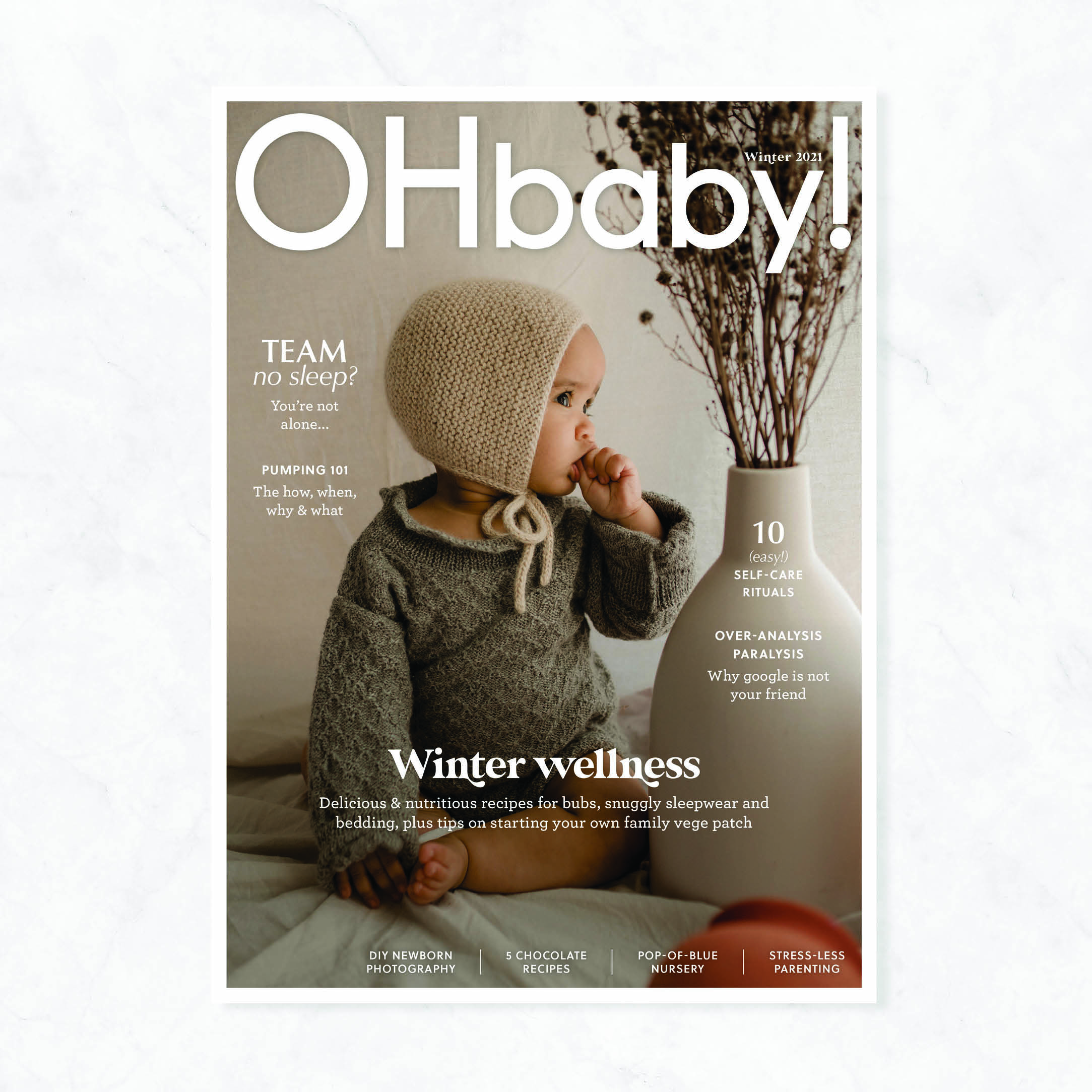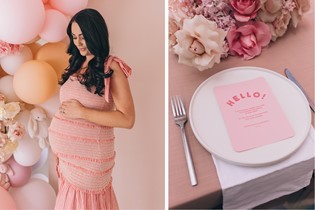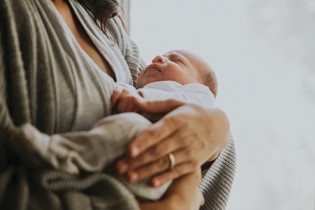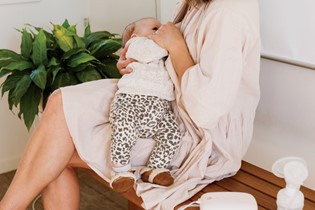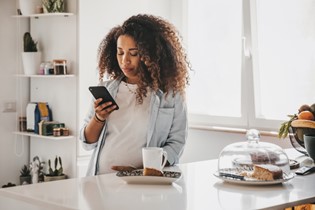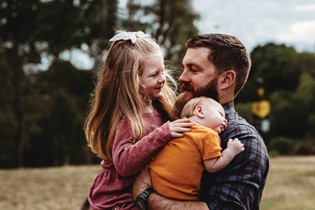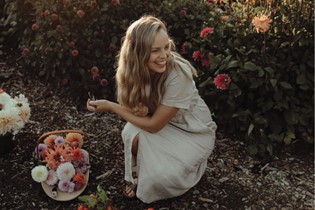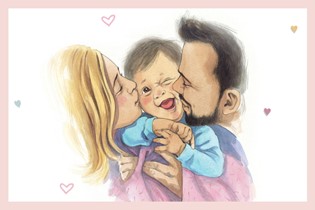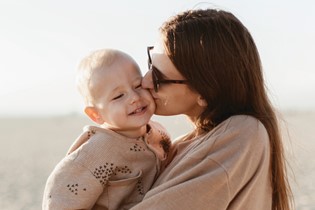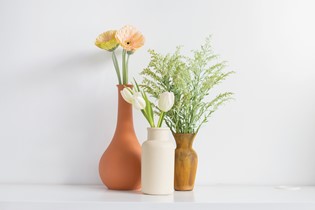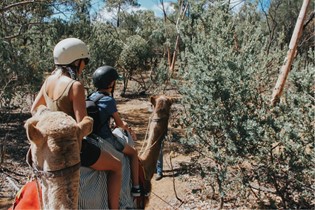Here's why you need to go on a 'Google Strike'
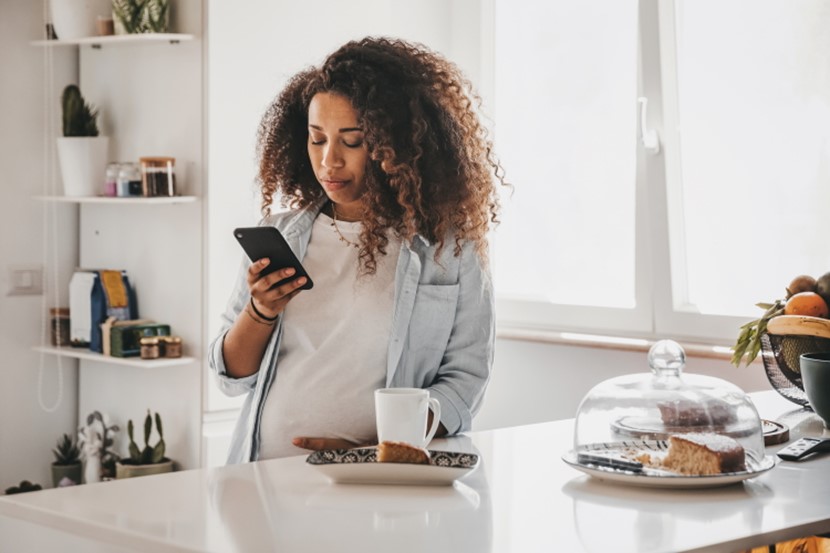
With all the parenting information we have access to on the internet these days it can be hard to know who to listen to. Miriam McCaleb shares her thoughts on why we should stop googling and start trusting ourselves.
Knowledge is power, or at least that’s what they used to say in a pre-internet world where they didn't have information overload. Is knowledge still power if there is so much to wade through that we can actually end up feeling disempowered? What happens when seeking that knowledge becomes unhelpful? In today’s click and seek, instant-answer culture, we can easily become overwhelmed by information.
Recently I heard from one mum dealing with that conundrum: introducing Natalie, from the Bay of Plenty. She has declared a 'google strike', because both she and her partner recognised that her information-seeking habit was no longer serving her. She’d be worried about an aspect of mothering, and as one google search led to another, she found herself approaching the state of 'over-analysis paralysis'.
Not usually much of an online searcher, Natalie found herself googling a lot more during her pregnancy – “Are these red raised lumps normal?", "What causes itchiness in pregnancy?", "Am I putting enough weight on?", "How to turn a breech baby." And the list goes on. She also started looking at forums, like Mumsnet, to read other women’s experiences to see if she was 'normal'.
I remember that feeling from my pregnancies too, how being 'normal' becomes the most important thing. Becoming pregnant can seem like a minefield of potential disasters; something as innocent as a sandwich from the deli can feel like a threat to our baby’s wellbeing. Unless there happens to be a midwife in the family, we are likely to be holding a zillion questions about the whole miraculous mystery of growing a baby.
In the words of another young mother from Christchurch: “I spent hours and hours obsessing about stuff that was not really within my control anyway. I must’ve lost days worrying and reading about infant circumcision – my husband was keen, I was not. In the end, we didn’t even have a boy! I wish I’d spent that time sitting in the sun with a book instead!”
Here’s the thing – all that searching is highly likely to dish up conflicting advice, and it can’t really be trusted to deliver you accurate information anyway.
One peer-reviewed paper from 2018 evaluated online health evidence for parents, concluding that “Overall, the reliability and quality of information available online to parents is lacking.”
Meanwhile, a more recent study examined Google search results for health-related questions and found that the visibility of reliable information was poor. The author concluded that page ranking systems can tilt people toward pages that might be popular, but not necessarily accurate. So if you seek information about immunisation schedules, you could find yourself reading what some celebrity’s opinion is, rather than the health advice from the appropriate government department or respected university lab.
We might start googling when we are seeking information or reassurance, only to find ourselves roaming around unproven websites, forums or Facebook groups, having to exercise an enormous amount of mental energy as we decide what’s true, what’s bogus and who to actually trust.
This can make a gal feel a bit bananas at the best of times, but these rabbit holes of information overload can become downright cruel if you throw in some post-baby wondering/anxiety/confusion/loneliness/angst, sprinkle on some postpartum hormones, mix in bone-numbing tiredness and serve it all on a sanitary pad of humbling size!
Back to Natalie, who said that her googling habit can leave her feeling overwhelmed and stressed at times. She explains, “There is a lot of info out there and it can make you feel that if you aren’t doing something that is said, then you aren’t doing a good job. It has also become a bit of an addiction in some ways, needing to know the answer to what is 'wrong' with me or my baby.”
I’m here to promote a radical idea – the chances are great that there is absolutely nothing wrong with us, or our babies. Despite everything, all the threats – the birthing horror stories, the global pandemic, even climate change – there is a decent statistical probability that you and your little one are going to be just fine.
The challenge is to be so brave and crazy as to relax into that probability. If you can’t trust everything to be okay for the next hour, just try the next ten minutes. Can you trust me that there is a solid chance of everything being alright for the next few minutes?
Giving ourselves these sorts of permission slips can slow us down, just a smidge. Being just a little more calm enables us to tune into our infant’s pace. If we can manage that, we just might find that observing, listening to and consciously noticing our babies can be a balm for all those racing thoughts.
It is so tremendously wrong that today's mothers and babies have been backed into a corner like this. Humans evolved this beautiful brain by living in groups, where a new mother would have been surrounded by family and models of infant care. She might not have had air conditioning, but she would have had plenty of companionship and reassurance.
Now we seek that companionship and reassurance online, and, alas, the companies of the attention economy (Google and Facebook among them) do not function with maternal and infant wellbeing as the priority in their business models.
One paper from 2019 talks about the 'evolutionary mismatch' of smartphones, highlighting the ways that designers explicitly use specific tactics in order to hijack our evolutionary hardware. Our ancient wiring that prepares us for intimate kanohi ki te kanohi (face-to-face relationships) is strategically tweaked to keep our eyes on our devices
for longer.
Once again, the antidote may be found right there in the baby sling. Next time you find your thoughts galloping away and your worries are tempting you to google everything, try this first: slow your breath to equal that of your baby, experience her on a deep, sensory level (smell her lovely head, touch his super soft skin, listen to her little sounds and snuffles). As I’ve written in this very magazine, there is a neurobiological gift that you and your baby give to one another when you take a moment (just a moment!) to match their state. It's slow, calm and all about the senses.

It can take practise, for sure, but it’s worth reminding yourself that it’s okay to unhook your busy mind and just dwell in the little circle of love that exists in your arms. I like to actively imagine the life of an early human, whose prefrontal cortexes have looked a lot like ours for about 250,000 years. My imaginary early human mama self would have probably held her baby a lot, accepted help from whānau and been utterly attuned to the rhythms of nature. She would have sung to her baby, there would have been stories around the fire. I’m a South Islander so I can’t help but imagine it was pretty cold (not ideal), but there would probably have been an awful lot of snuggling which helps to make up for that!
This is largely how life looked until recently in many traditional societies around the world, and in many cultures it still does. In Jean Liedloff’s classic book The Continuum Concept, she spent months living in a village in South America where she was one of the first ‘modern’ people encountered by the locals. She wrote, “I would be ashamed to admit to the (villagers) that, where I come from, the women do not feel themselves capable of raising children until they read the instructions written in a book by a strange man.”
For the villagers of Liedloff’s observation, there was no ‘expert opinion’ of mothering, there were no parenting education professionals (and yes, I have the good sense to type these words with guilt and irony!). For most of human history, we have relied on our instincts, on our observations of infancy and on those around us as we go about the busy business of baby care.
And we can still do that. We are capable of raising children. You, gentle reader, can care for this baby. We can find our support crews and sounding boards. What’s more, we can rebel against the 'googlefication' of everything and we can reject the deliberate spirals of the attention economy.
As long as we don’t use this desire for inner wisdom as another weapon for whacking ourselves with. My girl, Natalie, summarises it this way: “The list really is endless, it makes you think, ‘God, I should just stop and live and experience the moment’, but I think I am so scared of doing this parenting thing wrong and having a negative impact on my baby that I can’t help the googling. I am learning to trust myself and my instincts a bit more but it is still definitely a fear of not being a good enough mum, or failing my baby.”
Darling girls, if you are worrying about being a good enough mum, you are very probably a good enough mum. If you are taking the time to read this article, this magazine, you are very probably a good enough mum! A mum who is seeking the best information and working to make the best choices she can for her babe is highly unlikely to be harming that baby.
But you might be a mum who would benefit from slowing her scroll, trusting herself and trusting her baby; trusting that the wheels won’t fall off in the next half hour. So how about some important snuggling and gazing out the window work? A bit of bouncy walking or a rocking cuddle?
Let these seemingly small acts of cosy care be the antidote to the poisonous aspects of over-googling. Over time, this island of trust and connection will grow and grow, and you will realise that you are the expert on your baby. Not me, not some dude you’ve never met who wrote a parenting book, and certainly not Google.
Things to try:
- Worried? Before you google, try Healthline on 0800 611 116 if you need health advice about your baby or child. Call PlunketLine on 0800 933 922 if you need advice about child health or parenting, or call Parent Helpline on 0800 568 856 if you need parenting advice.
- In that vein, take time to find your offline tribe – peers, girlfriends, Plunket groups and elders. Time spent online could focus on setting up real-life connections or actively reaching out to specific trusted people.
- Speaking of specific trusted people, be careful what you google and be wary of who you trust. You might find it more helpful to bookmark a few trusted websites and limit your baby-related searches to those places.
- Some I would trust include the Ministry of Health website: health.govt.nz/your-health/pregnancy-and-kids. For overviews of child development, I dig the site of the Center on the Developing Child at Harvard University: developingchild.harvard.edu, and I adore Dr Dan Siegel: drdansiegel.com. For health stuff I think Melbourne’s Royal Children’s Hospital have some great resources: rch.org.au/kidsinfo. Also consider Dr Tracy Cassels site: evolutionaryparenting.com, and Pennie Brownlee's work is always affirming for me: penniebrownlee.weebly.com.
- By all means, come see me on my oft-neglected blog: baby.geek.nz, and you are bound to love life with the OHbaby! community: ohbaby.co.nz.
- Mamas, please only engage with truly supportive social media. The vulnerability of early motherhood is no time to entertain fakers or show-offs. Much more important is genuine connection with those you truly trust. And a messy house doesn’t mean you’re a terrible mum!
- The best function of your smartphone just might be the fact that it can play music. Dial down the googling, turn up the tunes and have yourselves a baby-paced boogie.
- For information and enjoyment, indulge in a lengthy read (as you remind yourself that you are the expert on your baby!). I cannot recommend Margot Sunderland’s book The Science of Parenting highly enough, ditto Dance With Me in the Heart by Pennie Brownlee. I also love Changing the World is Child’s Play by Sarah Best, or you might like The Power of Showing Up by Dan Siegel. Also try How to Break Up With Your Phone by Catherine Price and for an oldie but a goodie, check out Trees Make the Best Mobiles by Brandel France de Bravo and Jessica Teich.
Miriam McCaleb is the mum of two great girls, a writer, researcher, teacher, a lifelong learner and a keen gardener. She dedicates this article to Natalie and her two beautiful baby girls, with gratitude and love. It also comes with a heartfelt wish for peaceful days and restful nights for all of us – for all the mamas and all our glorious, unruly whānau.

AS FEATURED IN ISSUE 54 OF OHbaby! MAGAZINE. CHECK OUT OTHER ARTICLES IN THIS ISSUE BELOW
